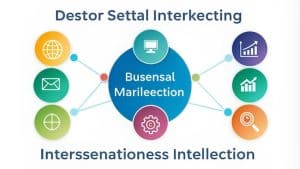Estimated reading time: 7 minutes
Key Takeaways
- *Efficient claims processing* is the backbone of customer trust and retention.
- Automation and electronic payments dramatically cut settlement times.
- Robust fraud prevention safeguards both insurers and policyholders.
- Strategic outsourcing offers cost savings and access to niche expertise.
- Transparent communication is the *golden thread* running through every successful claim.
Table of Contents
Understanding Claims Processing
Claims processing is the systematic approach insurers follow to review, verify, and settle claims. The journey begins with the claimant’s submission, includes rigorous investigation, continues through adjudication, and culminates in payment. When done right, it builds *unshakeable trust* between policyholder and insurer.
- Receiving the Claim: Documentation arrives—incident reports, photos, police statements, and more.
- Claim Investigation: Adjusters verify coverage and evaluate loss.
- Adjudication & Verification: Evidence meets policy language to determine compensation.
- Payment Processing: Electronic payment methods now dominate, trimming days—sometimes weeks—from settlement cycles.
Best Practices in Claims Processing
- Thorough Investigation: Dig deep to expose hidden facts and deter fraud.
- Evidence Documentation: Create a digital paper trail for quick dispute resolution.
- Proactive Communication: A quick phone call or automated text can turn frustration into loyalty.
- Structured Dispute Resolution: Clear, published protocols show *fairness* and boost brand goodwill.
Enhancing Efficiency & Compliance
Routine audits, automated reminders, and data-driven reporting keep claims teams *two steps ahead* of regulators while slashing bottlenecks. Compliance is no longer a checkbox—it’s a competitive advantage.
Fraud Prevention Strategies
- Rigorous Verification: Cross-checking details and site visits remain timeless tools.
- Data Analytics: Pattern recognition algorithms flag anomalies *before* payouts occur.
- Staff Training: Empower adjusters to detect red flags and act decisively.
Leveraging Technology
From AI-driven document capture to mobile apps, technology transforms claims from paperwork headaches into seamless digital experiences. **Electronic payments** mean money lands in policyholders’ accounts in hours, not days.
The Role of Outsourcing
Outsourcing offers cost savings, scalability, and instant access to seasoned investigators. By partnering with third-party administrators, insurers can refocus internal resources on strategy while specialists handle day-to-day claims volume.
Improving Customer Experience
Transparent updates, empathetic adjusters, and swift resolutions are the pillars of *five-star* customer journeys. Remember the timeless quote, “People will forget what you said, but they will never forget how you made them feel.”
Challenges in Claims Processing
- Claim Complexity: Catastrophic events create intricate, multi-party claims.
- Data Security & Privacy: Rising cyber-threats demand airtight safeguards.
- Fraud & Misrepresentation: Sophisticated scams evolve as fast as detection tools.
Conclusion
Mastering claims processing is more than operational hygiene—it’s a growth strategy. Insurers who blend best practices, cutting-edge tech, and strategic outsourcing will lead the market on both efficiency *and* customer satisfaction.
Call to Action
Ready to revolutionise your claims process? Explore the full roadmap in our guide, or reach out to our experts for a tailored consultation today.
FAQs
Why is efficient claims processing crucial for insurers?
It directly impacts customer satisfaction, regulatory compliance, and overall profitability.
How does automation speed up settlements?
Automation reduces manual data entry, flags errors instantly, and triggers immediate next-step actions.
What role does data analytics play in fraud detection?
Analytics spots suspicious patterns by comparing incoming claims against historical datasets in real time.
When should an insurer consider outsourcing claims?
Outsourcing is ideal during volume spikes, geographic expansion, or when specialised expertise is required.
How can insurers measure customer satisfaction post-claim?
Surveys, Net Promoter Scores, and real-time feedback tools reveal claimant sentiment and service gaps.
Are electronic payments secure enough for large settlements?
Yes. Modern payment platforms use encryption and multi-factor authentication to protect high-value transfers.







